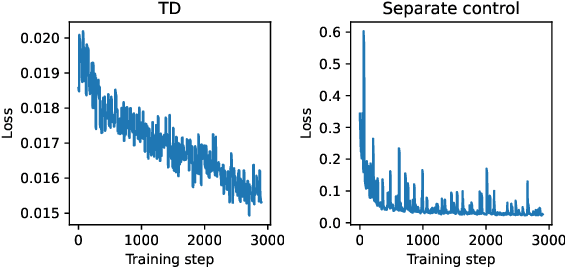Control, Transport and Sampling: Towards Better Loss Design
Paper and Code
May 22, 2024



Leveraging connections between diffusion-based sampling, optimal transport, and optimal stochastic control through their shared links to the Schr\"odinger bridge problem, we propose novel objective functions that can be used to transport $\nu$ to $\mu$, consequently sample from the target $\mu$, via optimally controlled dynamics. We highlight the importance of the pathwise perspective and the role various optimality conditions on the path measure can play for the design of valid training losses, the careful choice of which offer numerical advantages in practical implementation.
 Add to Chrome
Add to Chrome Add to Firefox
Add to Firefox Add to Edge
Add to Edge